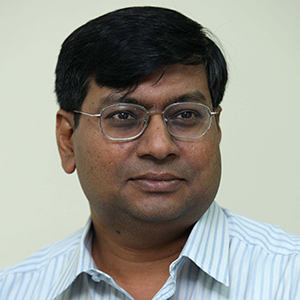 A startling little observation about the state of the nation’s water catchment areas was highlighted at a seminar on climate change earlier this month.
A startling little observation about the state of the nation’s water catchment areas was highlighted at a seminar on climate change earlier this month.
Apparently, most of the water catchments in the country are not gazetted, according to PBA Holdings CEO Jaseni Maidinsa, raising the question of how secure our water supply is from a whole range of threats, including illegal logging, waste dumping, illegal farming and whatever else goes on when no one bothers to protect the water sources.
The No. 1 task facing water supply managements in the country today is to secure our water catchments so that the water supply can be ensured, said Jaseni in his keynote address entitled “Climate change and the coming water crisis: options and solutions”.
He was speaking at the seminar on “Climate Change: Burning questions for the media”, organised by Universiti Selangor and the Asian Institute for Development Communication.
As a water industry professional, Jaseni, who is also the general manager of the well-respected Penang Water Authority, is keenly aware of the critical importance of conserving water catchments.
“I have made it my life crusade to convince government leaders about the vital need to gazette and protect our water catchments,” he said at the seminar.
Indeed, a National Audit Department presentation on water quality available online confirms that as of 2010, more than 70% of water catchment forests had not been gazetted.
This highlights the root of the problem concerning the future of our water supply – a disastrous lack of concern about water as a strategic resource.
As Jaseni pointed out, where there is no water, there is no life, and a litre of water, which has a low price for Malaysians today, would have infinite value if our water supply dries up.
For a country that is blessed with abundant rainfall, it is difficult for its people to appreciate why the supply of water must not be taken for granted, although recurring supply disruptions, including a major rationing exercise which affected 6.7 million people in the Klang Valley this year, drive home the message that water demand and usage management are critical areas of concern for us today.
Besides the degradation of water catchment areas, this year, the threat of a water crisis was brought home by the sharp drop in rainfall from January till March, highlighting the impacts of changing weather patterns on our lives (see chart).
Underlining this risk, the United Nations Intergovernmental Panel on Climate Change warned in its recently released 5th assessment report that water scarcity is expected to be a major challenge for most of the Asian region because of increased water demand and lack of good management.
Lead coordinating co-author of the Asia chapter of the report, Prof Joy Jacqueline Pereira of Universiti Kebangsaan Malaysia, who presented the report’s findings at the seminar, said that key threats included crop failure and reduced crop yields, leading to food insecurity in the region.
Clearly, a holistic approach towards water management is absolutely crucial if we are to avoid the serious disruptions to our water supply that are predicted by water experts. Towards this end, strategies covering water demand management, water recycling and rainwater harvesting must be mainstreamed in order to avert the disruptive effects of severe water stress on the economy and people’s lives.
Despite the critical importance of planning for water demand, it is inexplicable that even a top level development programme like the Economic Transformation Programme had not included projections for increased water demand, according to Jaseni.
This limited outlook towards water demand management also shows in the Selangor-Pahang interstate water transfer project, according to water rights activist Charles Santiago, in comments to The Edge.
“Water conservation should be the priority in water management programmes,” said Charles, who is the MP for Klang.
“The government is taking the easy way out by building the Sungai Kelau Dam,” he said. “It does not take into account the unpredictable nature of climate change.”
On rainwater harvesting, Jaseni said despite years of lobbying, only a handful of states had amended the relevant laws to introduce this system of demand management. Implementation is a separate matter altogether.
An integral element in the conservation of water is the pricing of this basic commodity, which is far too low in Malaysia to ensure its responsible usage.
As a result, per capita consumption in the country is 225 litres a day, well above the UN recommendation of 100 litres.
That is hardly surprising, says Jaseni, considering that in Penang, for example, which he says has the cheapest water rates in the world, a typical household’s monthly water bill costs less than the price of a coffee at Starbucks.
For water supply to be judiciously managed, says Jaseni, water must be seen as a strategic resource and valued accordingly. That is the price of ensuring that we do not suffer water shortages in the foreseeable future.
Says Charles: “Nature will teach us a very hard lesson if we don’t take heed of the warning signs it is giving us.” – September 20, 2014.
* This is the personal opinion of the writer or publication and does not necessarily represent the views of The Malaysian Insider.


Comments
Please refrain from nicknames or comments of a racist, sexist, personal, vulgar or derogatory nature, or you may risk being blocked from commenting in our website. We encourage commenters to use their real names as their username. As comments are moderated, they may not appear immediately or even on the same day you posted them. We also reserve the right to delete off-topic comments